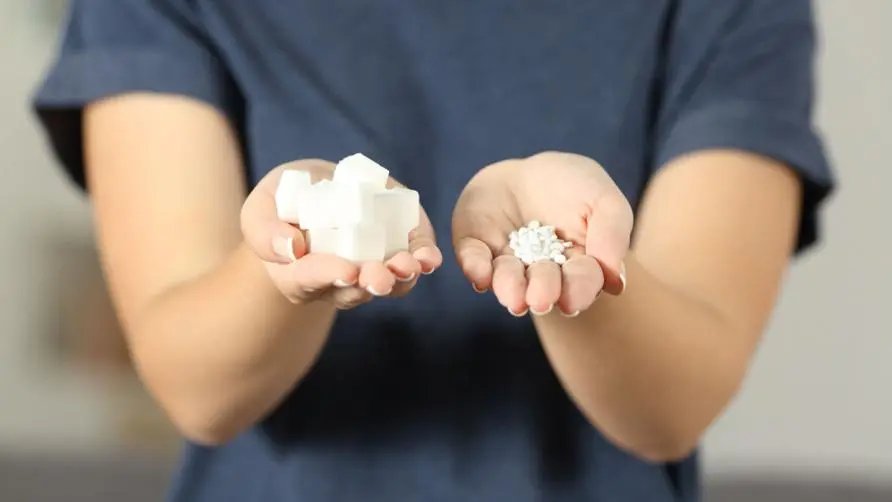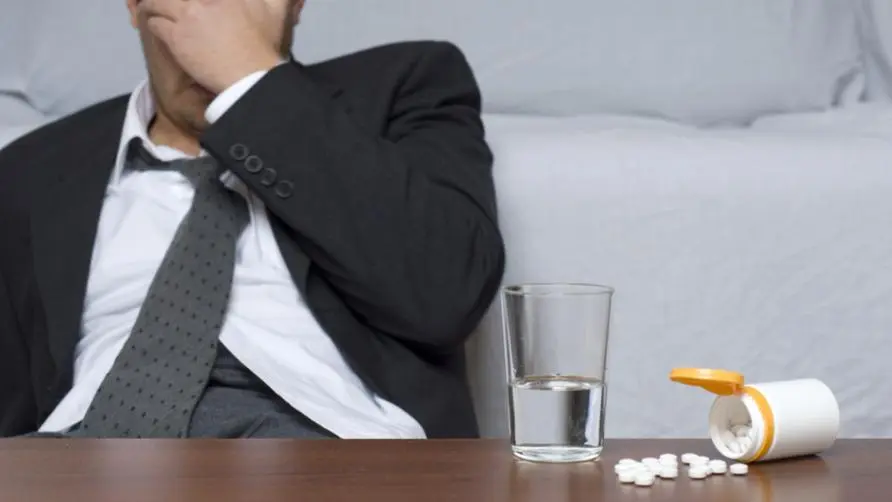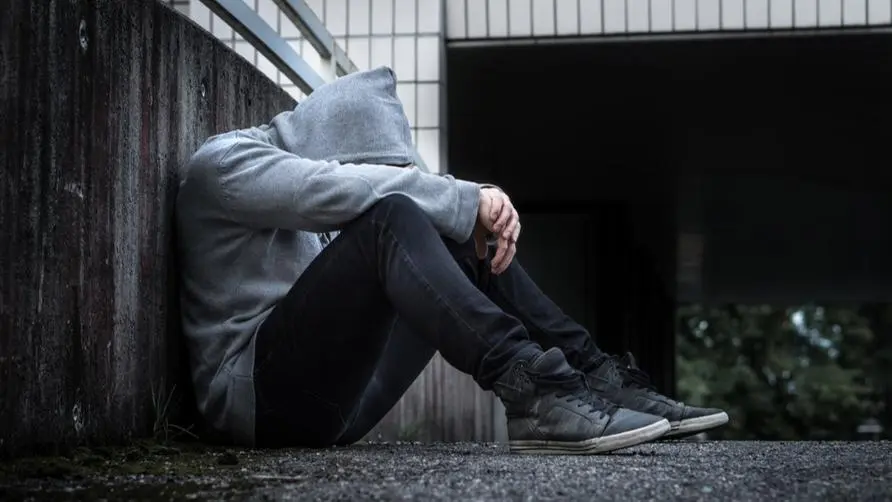Taiwan's severely depressed population exceeds one million? Doctors reveal 5 major reasons why patients are "helpless"
Two million people in Taiwan have symptoms of depression. Doctors estimate that the number of people with severe depression exceeds one million
Showbiz queen Coco Lee passed away suddenly and was rumored to have suffered from depression for many years. According to the Taiwan Ministry of Health and Welfare’s “Suicide Prevention Handbook”, more than 70% of those who commit suicide suffer from depression, and the risk of suicide for those suffering from depression is about 20 times that of the general population. What is even more noteworthy is that the potential prevalence of depression is higher than popular imagination. If appropriate help and support from relatives and friends are not sought in a timely manner, the risk of suicide may increase.
“Depression can cause serious socioeconomic burdens and disability, ranking first among all diseases!” Dr. Yang Congcai, director of Yang Congcai Mind and Body Clinic and associate professor of the Department of Social Psychology at Shih Hsin University, said in an exclusive interview with healthorn that the number of patients with depression worldwide has exceeded It has a population of 300 million, and the Taiwan Health Promotion Administration’s depression survey shows that about 8.9% of the people in Taiwan have symptoms of depression, that is, about 2 million people. Among them, 5.2% are severely depressed, about 1.25 million people.
Mental illness is a major risk for suicide! 5 reasons why patients are helpless
Dr. Yang Congcai said that research shows that mental illness is an important risk factor for suicide, affecting patients’ physical and mental conditions from all aspects.
Psychological pain: Long-term emotional distress, psychological pain and despair may prompt them to hope to relieve their pain through suicide.
A sense of helplessness. Severe depression and anxiety disorders will make patients feel helpless about the current situation and unable to find effective ways to cope, leading them to consider suicide.
Psychiatric symptoms. Some mental illnesses such as schizophrenia can cause hallucinations and delusions, leading to suicidal thoughts.
Social isolation, alienation from interpersonal relationships can make patients feel isolated, excluded or unable to obtain support, making them feel helpless and hopeless.
High-risk behaviors, such as borderline personality disorder, or alcohol and drug abuse, are highly correlated with suicidal behavior. These factors may lead to impulse control problems and increase the patient’s risk of suicide.
“Of course, mental illness is not the only risk for suicide. It is still a complex and multi-factorial problem!” Dr. Yang Congcai emphasized that mental health, social support, life stress and personal life experience will all affect individual feelings and disease control. The key is to provide appropriate treatment, support and mental health services, and to continue to raise the public’s correct understanding of depression.
Do Taiwanese people have symptoms of depression without knowing it? Is depression also related to genetics?
Dr. Yang Congcai pointed out that many people may have symptoms of depression without knowing it. Depression is a mental health disorder that causes a range of symptoms including low mood, loss of interest or happiness, low energy, difficulty concentrating, decreased self-esteem, and sleep problems. However, due to self-denial or social concepts or cultural influences, depression may be mistaken for “weakness”, “deficiency” or lack of willpower, resulting in patients not seeking professional help correctly.
On the other hand, some patients choose to hide their emotions and pain and do not express or seek help from others, resulting in being unable to realize their depression symptoms. Or treating depression as one’s own fault, or even treating depression symptoms as a “normal reaction” may be the reason why patients with depression are unaware that they are suffering from depression.
“Research shows that depression has a clear genetic aggregation phenomenon in families. If parents, brothers and sisters suffer from depression, it will indeed significantly increase the risk of the disease!” Dr. Yang Congcai said that genetic research has identified multiple factors related to the risk of depression. genes. These genes may be related to biological processes such as the metabolism of neurotransmitters and neurodevelopment.
In addition to genetic factors, other biological influences such as neurochemical imbalances, psychosocial factors such as stress, traumatic experiences, and personal traits will interact with genetic factors to affect the expression and occurrence of depression. Dr. Yang Congcai emphasized that having a genetic risk does not mean that depression will definitely occur. Environment and lifestyle also play a very important role. When you have symptoms of depression, you should still seek timely evaluation from a psychiatrist.
What are the treatments for depression? What are the common antidepressant drugs?
The bottom line is, depression is a treatable disease. Dr. Yang Congcai pointed out that the treatment methods for depression include medication, psychotherapy (cognitive behavioral therapy (CBT), interpersonal therapy, problem-solving therapy), physical activity, social support, auxiliary therapy, etc. The most commonly prescribed antidepressant drugs currently include four categories:
Selective serotonin reuptake inhibitors (SSRIs): The most commonly used antidepressant drugs, including Fluoxetine, Paroxetine, and Sertraline. The main function is to inhibit the reabsorption of serotonin in the brain and increase serotonin concentration to improve mood and emotional problems.
Selective norepinephrine reuptake inhibitors (SNRIs): These drugs affect the reabsorption of serotonin and norepinephrine at the same time, such as Venlafaxine, Duloxetine, etc.
Tricyclic antidepressants (TCAs): earlier antidepressants, such as Amitriptyline, Imipramine, etc. Acts primarily on the reabsorption of serotonin and norepinephrine, but also affects other neurotransmitters.
Monoamine oxidase inhibitors (MAOIs): Function to inhibit the activity of monoamine oxidase and block the degradation of serotonin, norepinephrine and dopamine. Such as Phenelzine, Moclobemide, etc. These drugs may have serious interactions with other drugs and food, and there are many restrictions on their use. Intervention is usually only considered when other drugs are ineffective or intolerable.
Other antidepressant drugs include: serotonin-norepinephrine-dopamine reuptake inhibitor (SNDRI) and serotonin-norepinephrine-dopamine releasing agent (SDRI), but they are less commonly used.
The companionship and assistance of relatives and friends is very important! How to deal with depressed relatives and friends?
“When a relative or friend suffers from depression, it is very important for the family and friends to accompany and assist them!” Dr. Yang Congcai suggested that when a relative or friend faces depression, the family member can learn the correct knowledge about depression, including symptoms, causes and treatment methods, which will help to understand the relatives and friends. The situations and feelings you are experiencing. When getting along, try to show a willingness to listen and do not try to solve the problem easily. The most important thing is to provide a sense of security and help the patient open up.
Dr. Yang Congcai reminded that relatives and friends can express care and support in the right way, but everyone faces depression at a different pace. Not every patient with depression needs to be accompanied 24 hours a day. The key is to communicate and ask how they want to be supported, and respect patient’s wishes. In addition, depression may affect self-care and living abilities, including going out and shopping. Appropriate assistance can reduce the stress and burden of patients with depression.
“Remember to take care of yourself and seek your own support system!” Dr. Yang Congcai reminds that depression requires professional treatment and support, and you must receive expert evaluation or psychological consultation in a timely manner. Regularly engaging in appropriate exercise, such as aerobic exercise, walking, and yoga, can increase the release of dopamine and improve your sense of well-being. The emotional support that comes from joining a support group or talking to friends and family can also have a stress-reducing effect. Art therapy, music therapy and other methods can also relieve stress, promote emotional release and relax.
Extended reading:
Singer Coco Lee reportedly committed suicide and passed away! Why are there more and more “hidden grievers”? Be alert if relatives and friends show “3 signs”




